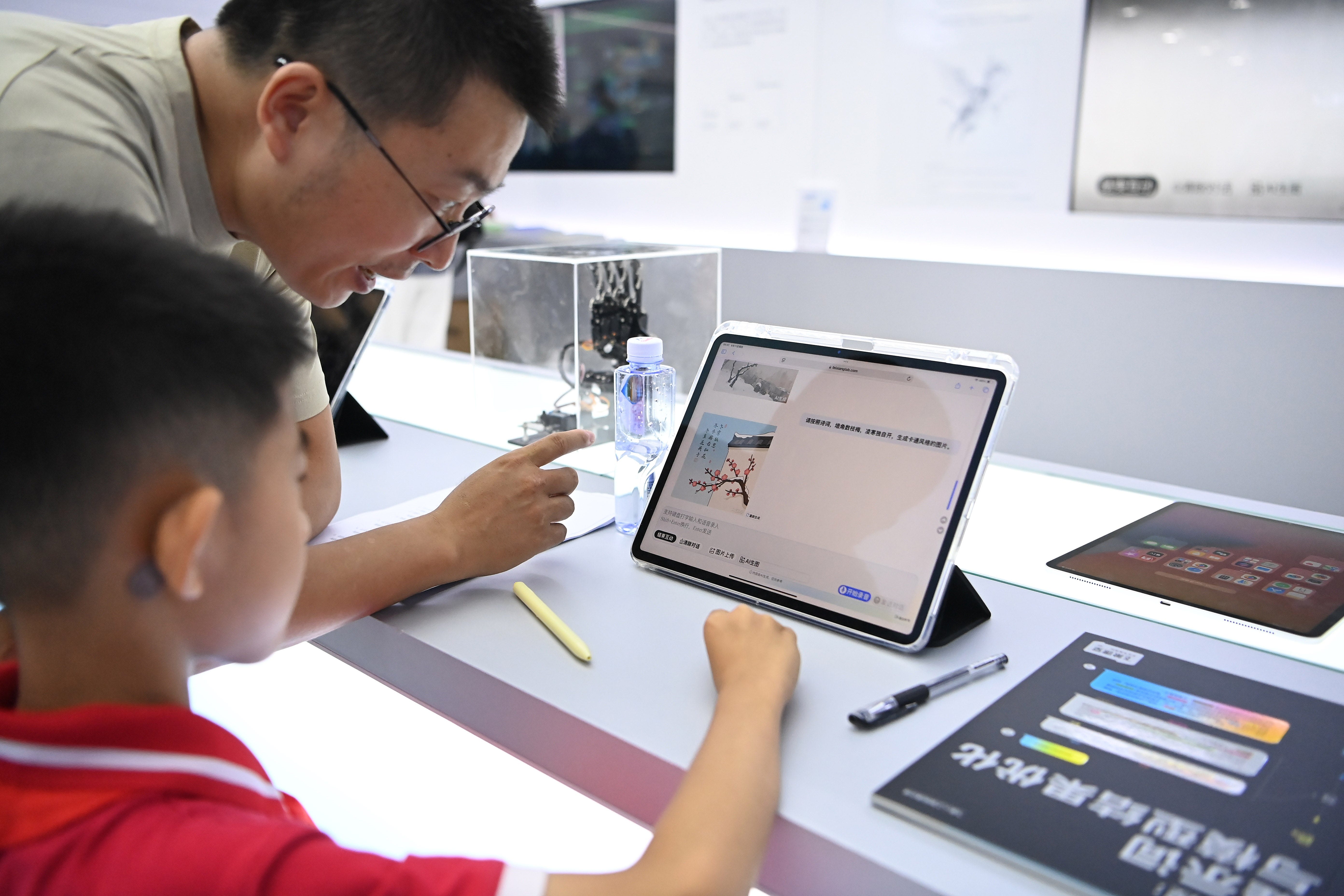
Xinhua News Agency via Getty Images
- Most UK teens now rely on AI in class, and many struggle to judge if it’s telling the truth.
- Oxford University Press says AI is making students gain speed but lose depth in thinking.
- Six in 10 say AI hurts their skills, and one in four say it makes work too easy, the study found.
Artificial intelligence is changing how a generation learns, and Oxford researchers say it could also be changing how they think.
A new report from Oxford University Press, which surveyed 2,000 UK students ages 13 to 18 in August, found that eight in 10 of the teenagers interviewed use AI tools for their schoolwork, and nearly as many turn to them for homework help.
Many students said these tools are helping them “think faster” and “solve difficult questions,” but experts warn that this new fluency may come at a cost.
“Today’s students are beginning to think alongside machines — gaining fluency and speed in processing ideas, yet sometimes losing the depth that comes from pausing, questioning, and thinking independently,” said Erika Galea, Director of the Educational Neuroscience Hub Europe and coauthor of the report.
“The true challenge ahead is not mastering technology but safeguarding the depth of human thought in an age of synthetic cognition and artificial intelligence,” she added.
That “synthetic cognition,” as Oxford researchers call it, reflects a new kind of thinking emerging among what they dub the “AI-native generation” — teenagers who have grown up learning side by side with algorithms.
While over 90% of students said AI has helped them develop at least one academic skill, six in 10 also said it was harming their abilities in other ways: a quarter said it has made learning “too easy,” one in 10 said it has limited creativity and reduced the need for critical thinking.
One 13-year-old boy said he had become “dependent on it now.”
Teachers share similar concerns.
One in three students said their teachers aren’t confident using AI in lessons, and 51% wanted clearer guidance from schools on when to use the tools responsibly.
Oxford researchers argued that education systems must evolve to teach with AI without letting students think like it.
“AI has changed how we learn, but it hasn’t changed why we learn,” Olga Sayer, teacher and coauthor of “Generation Alpha in the Classroom,” said in the report.
“The ultimate goal of education remains the same,” she added, “to think independently and creatively, and to grow as a person.”
The Oxford researchers called for schools to embed AI literacy, metacognitive training, and teacher support to help students balance speed with reflection — ensuring they don’t just learn faster, but smarter.
In the age of ChatGPT and instant answers, the next generation of learners may be fluent in AI, but unless guided carefully, they risk becoming what the Oxford researchers call “synthetic” thinkers: fast, efficient, and impressively capable but missing the depth that true learning demands.
Read the original article on Business Insider
The post AI is reshaping the teenage brain — and an Oxford study says it is making students faster, but shallower thinkers appeared first on Business Insider.




